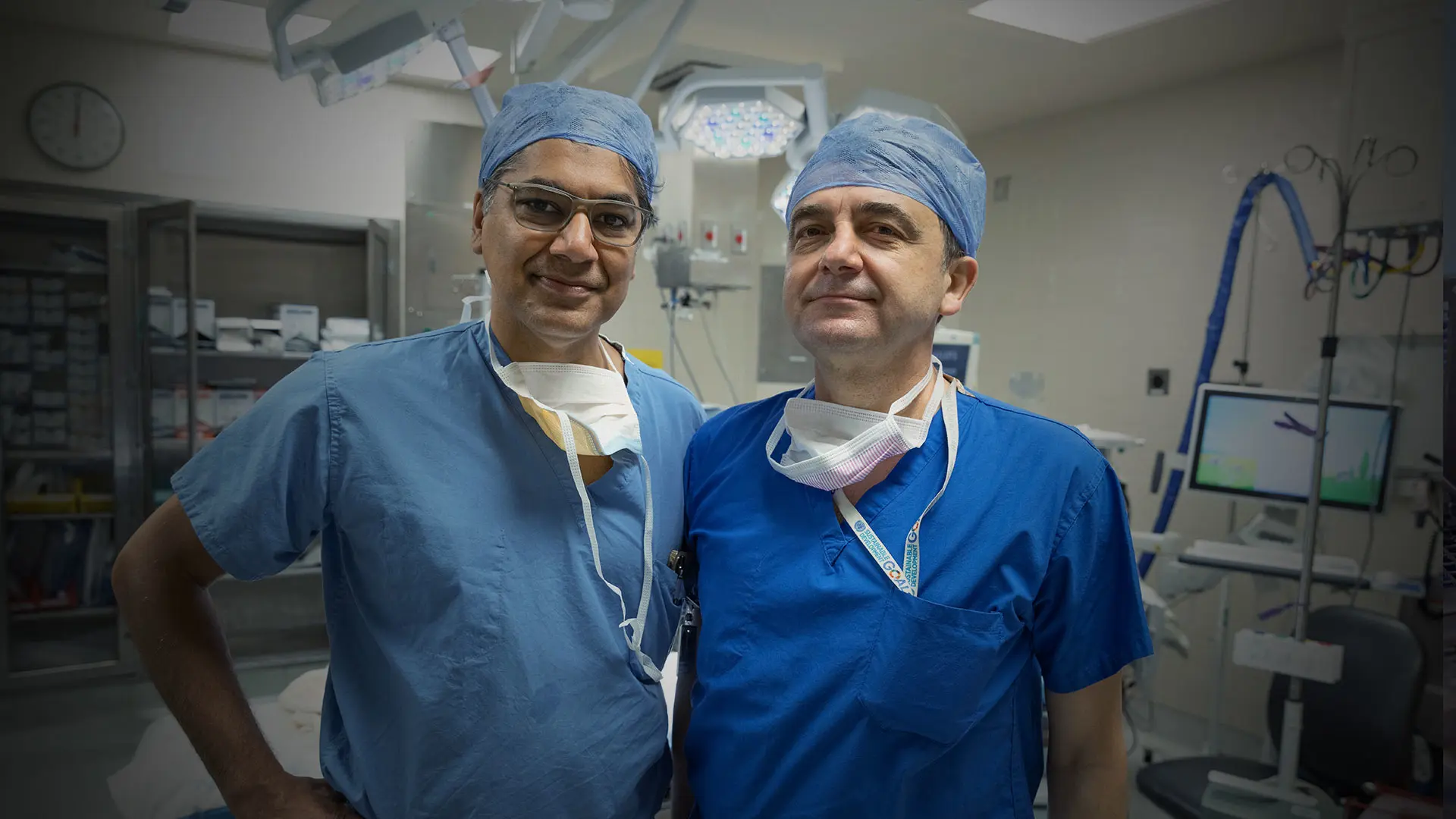As the number of patients presenting for feminizing genital surgery continues to grow, there is limited comparative data on the different approaches to help inform patient decisions on the best option for them. Mount Sinai surgeon Rajveer S. Purohit, MD, MPH, is working to fill that gap for the benefit of patients.
“Without the ability to do direct comparisons of techniques, choices are often based on the anecdotal experience of the surgeon or, for patients, information gleaned from social media,” says Dr. Purohit, Director of Reconstructive Urology at The Mount Sinai Hospital and Professor of Urology at the Icahn School of Medicine at Mount Sinai.
“Given that Mount Sinai offers options such as penile inversion vaginoplasty, peritoneal flap vaginoplasty, sigmoid vaginoplasty, and minimal-depth vaginoplasty, we are in a unique position where we can gather and assess comparative data on different types of options for women seeking feminizing genital surgery,” he says.
Dr. Purohit is working to fill these knowledge gaps through retrospective research involving Mount Sinai patients who have undergone feminizing genital surgery. He led a first-of-its-kind study comparing outcomes and complication rates among patients who underwent peritoneal flap (PF) gender-affirming vaginoplasty versus those who underwent penile inversion (PI) gender-affirming vaginoplasty at the same institution. The results of the study were presented at the American Urological Association’s annual meeting in 2023 and have been submitted for publication.

Rajveer S. Purohit, MD, MPH, Director of Reconstructive Urology at The Mount Sinai Hospital and Professor of Urology at the Icahn School of Medicine at Mount Sinai, is working to fill knowledge gaps through retrospective research involving Mount Sinai patients who have undergone feminizing genital surgery.
“Existing studies of peritoneal flap vaginoplasty have only reported outcomes compared to published norms and not directly to the standard penile inversion,” Dr. Purohit says. “Our goal was to determine whether one approach is preferable in terms of results and whether it was possible to customize our approach toward surgery for very specific patients.”
The patient data were collected from 80 Mount Sinai patients who underwent PI (40) and matched to PF (40) patients between 2020 and 2023. Dr. Purohit found that the PF flap cohort had greater vaginal depth at both one month (18 cm [13-20] versus 15 cm [4.0-23]) and six months (18 cm [11-20] versus 15 cm [2.5-19]) than the PI cohort, despite shorter preoperative phallic skin length (7.0 cm [1.0-11] versus 9.0 cm [6.0-13]).
“It is not clear that there is much of a clinical difference in that extra three centimeters that patients achieved on average with peritoneal flap vaginoplasty,” Dr. Purohit says. “That said, the one caveat is patients who present with genital hypoplasia, or underdeveloped male genitalia, benefit more from having a peritoneal flap our data suggest.”
Dr. Purohit also noted that no rectal injuries occurred with PF vaginoplasty versus three with PI. Furthermore, the PF cohort had less estimated blood loss (250 cc [150-500] versus 300 cc [150-700]) and fewer transfusions (2.5 percent versus 7.5 percent) than the PI cohort. Similar results were observed among both groups for length of stay (3 days [2-5] versus 3 days [2-6]), operative time (339 minutes [269-447] versus 365 minutes [249-524]), hospital readmissions (10 percent versus 7.5 percent), vaginal stenosis (2.5 percent versus 15 percent), and fistula (0 percent versus 0 percent).
“These findings give us some reassurance that these are generally safe procedures, according to Dr. Purohit. “I think this is a really important study because it gives us something for making informed decisions where there was nothing previously, and I believe it will lead to more studies.”

Miroslav Djordjevic, MD, PhD, Clinical Professor of Urology at the Icahn School of Medicine at Mount Sinai, is a leading authority on surgery for transgender individuals.
The studies build on Mount Sinai’s extensive expertise and pioneering work in the field of gender-affirming genital surgery.
“We have developed a robust program for gender-affirming surgeries that puts us among the top institutions in the world,” says Miroslav Djordjevic, MD, PhD, Clinical Professor of Urology at the Icahn School of Medicine at Mount Sinai. “We are also training more residents in how to manage these cases, which is helping to increase access to care across the country. That is a source of pride for us.”
Dr. Purohit is conducting and planning further comparisons of feminizing genital surgery approaches. He has completed an assessment of outcomes among patients who have undergone revision surgery following both peritoneal flap and sigmoid vaginoplasty and is interested in conducting another comparison of patients who have undergone PI and PF to see whether there are differences in postoperative pain scores.
“Through these studies, we are delivering more insights to help inform surgeon and patient decision-making,” Dr. Purohit says. “They are an important start for assessing feminizing genital surgery in a data-driven way.”
